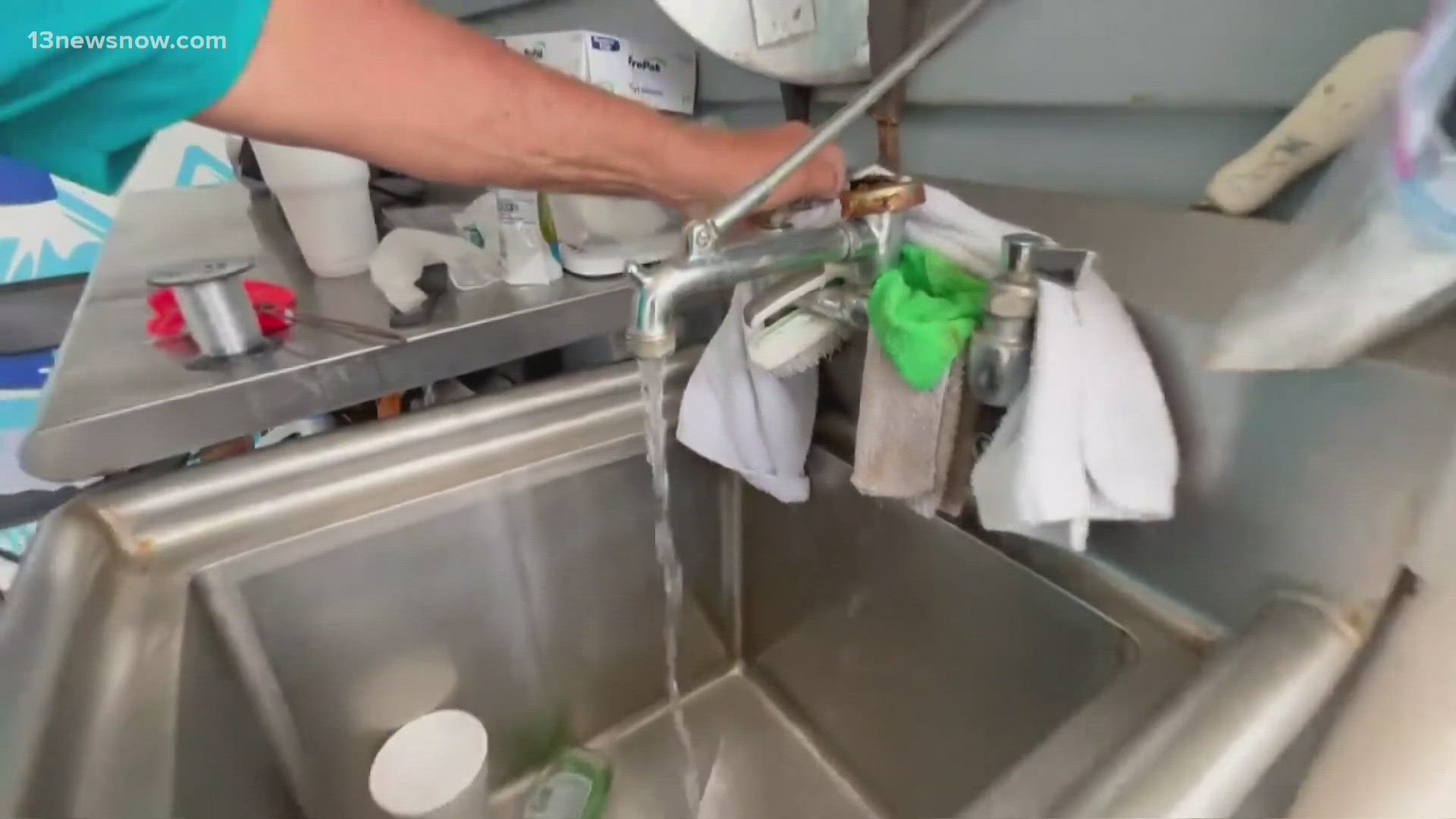NORFOLK, Va. — The Environmental Protection Agency (EPA) is implementing the first-ever national standard limiting ‘forever chemicals’ in drinking water.
13News Now has reported time and time again about the dangers of PFAS, or forever chemicals. They’re in everyday materials and can end up in your drinking water. They have also been linked to long-term health problems, like cancer.
It’s a move that will protect more than 100 million people, according to the EPA.
On Wednesday, the Biden administration finalized strict limits on certain ‘forever chemicals’ in drinking water — the first national limit of its kind.
"Everyone should be able to turn on the tap and know that the glass of water they fill is safe to drink and free of pollutants that harm people's health and well-being," said Brenda Mallory from the Council on Environmental Quality.
The man-made chemicals have been used in everyday products including nonstick pans, firefighting foam and waterproof clothing. Although some of the most common types are phased out in the U.S., others remain. Water providers will now be forced to remove contamination put in the environment by other industries.
The new rule sets strict limits on two common types of the chemical — called PFOA and PFOS — at 4 parts per trillion. Three other types including GenEx Chemicals, which are a major problem in North Carolina, are limited to 10 parts per trillion.
In the past, the non-profit Environmental Working Group (EWG) found four of the military installations with some of the high levels of forever chemicals in the groundwater are in Hampton Roads — Langley Air Force Base, Naval Air Station Oceana, Fort Eustis and Naval Auxiliary Landing Field Fentress.
13News Now reported in February thousands of drinking water samples taken near more than 60 military bases across the country showed, what the EPA now officially calls, unsafe levels of PFAS, including at Naval Air Station Oceana.
"Once they get into the water, they can spread out from the bases to surrounding areas and they can get into these drinking water wells," Jared Hayes with EWG said. "From there, seeped into the soil and groundwater contaminating more than 450 sites that we know of so far across the country."
However, the EWG said this new limit does not include private water wells. Instead, they say people who rely on them but have contaminated water are eligible for bottled water, home filtration systems or connections to public water supplies through the DoD and funding for testing and treatment.
Up until now, anything above 70 parts per trillion would trigger Department of Defense (DoD) support in the form of things like bottled water, now that number drops to 4 ppt.
Water systems across the country will have three years to monitor for those chemicals and an additional two years to implement new technology to cut down on PFAS.
The new rule will cost an estimated $1.5 billion each year to implement, but the EPA said doing so will prevent nearly 10,000 deaths over decades.
In anticipation of this change, the DOD told 13News Now in a statement back in February, that they were already assessing how to incorporate the regulatory standard into their current cleanup process.
"The Department is assessing what actions DoD can take to be prepared to incorporate EPA’s final regulatory standard into our current cleanup process, such as reviewing our existing data and conducting additional sampling where necessary. The Department is expanding ongoing investigations to determine where PFAS has migrated off-base above the proposed levels and working to determine when public or private wells may have been impacted," said a DoD spokesperson in that statement.

